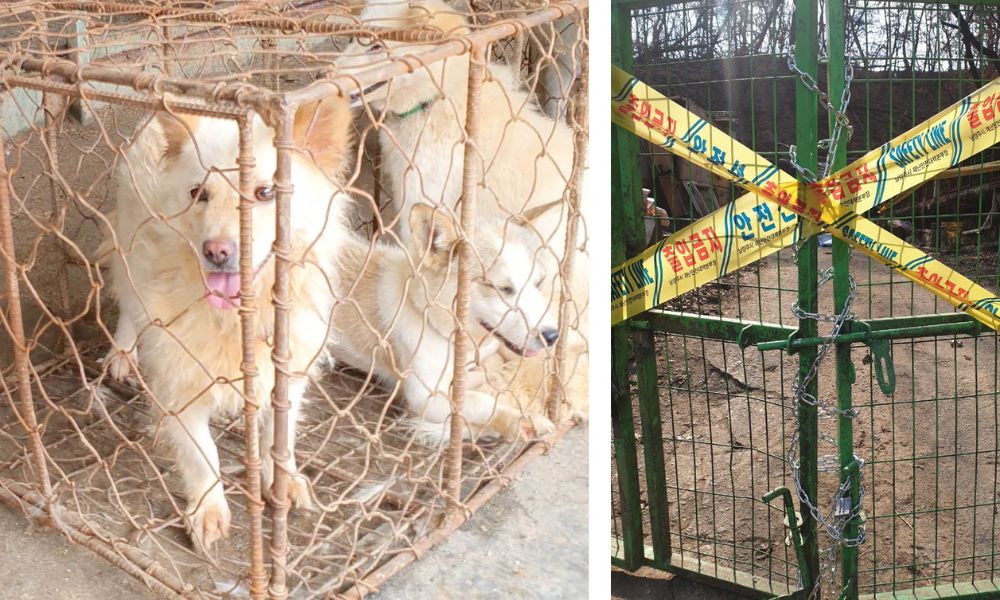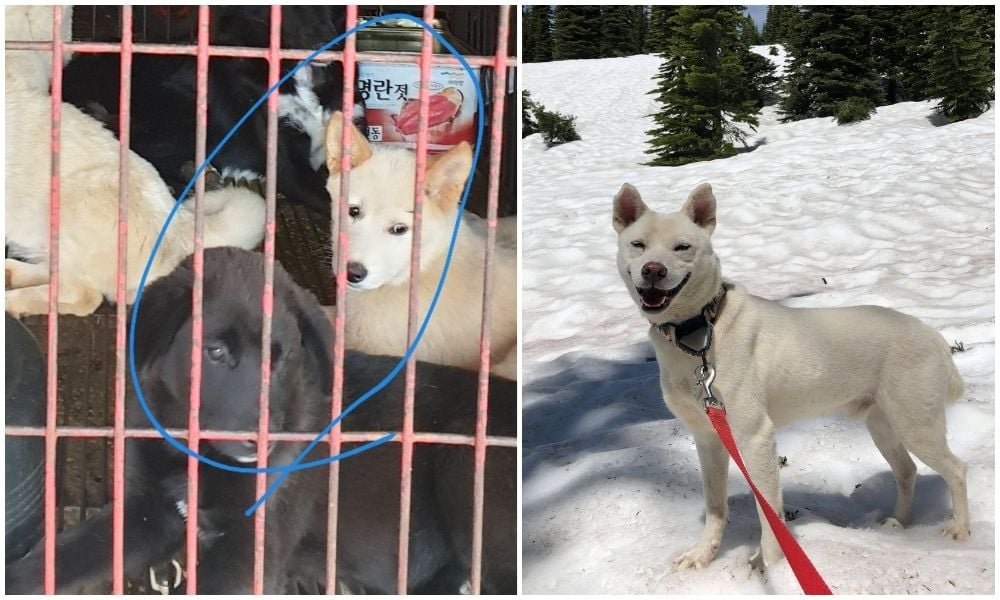In monumental and long-awaited news, the National Assembly of the Republic of Korea has officially passed a bill banning the dog meat industry in South Korea!
Under the new law, the breeding and slaughter of dogs for dog meat, distribution, and the sale of dog meat will be illegal by 2027. The special act to end dog meat was introduced at the end of 2023 with bipartisan support. With its passage, over 1,150 dog meat farms, 34 slaughterhouses, and 219 dog meat distributors will be forced to shut down.
This victory follows many years of campaigning from activists within South Korea and around the world. Thanks to the South Korean government and action from animal welfare organizations — including Lady Freethinker — up to a million dogs will be spared the horrors of farming and slaughter each year.
Lady Freethinker has documented the brutal conditions in dog meat facilities over the course of multiple investigations. Partnering with local group Save Korean Dogs, our campaigns led to the closure of two dog meat auctions.

Left: Nakwon Auction House (LFT Undercover Footage) Right: After Closure (Courtesy of City of Namyangju)
South Korea currently hosts the only industrial-scale dog meat farms in the world. The national dog meat farmers association claims that as many as one million dogs are slaughtered for consumption each year. Shutting these brutal businesses down is a massive victory for dogs facing slaughter.
Lady Freethinker’s bus and taxi ads and protests with Save Korean Dogs raised awareness in multiple cities. Lady Freethinker’s petition calling for a ban on the dog meat trade in South Korea garnered over 124,000 signatures.

Left: Tobias Before Rescue (Courtesy of Save Korean Dogs) Right: Tobias with his Forever Family (Courtesy of Jenica Biggs)
In partnership with Save Korean Dogs, Lady Freethinker has also helped dogs who would have been slaughtered without intervention. Tobias, pictured above, was bred into the dog meat industry in South Korea. He was languishing in a tiny, crowded cage when Save Korean Dogs freed him from a gruesome fate. Lady Freethinker founder Nina Jackel flew Tobias to his forever home in the US.
With this monumental legislation, South Korea has saved millions of innocent dogs like Tobias from slaughter.
The new law provides a structure to transition all businesses associated with dog meat — including farms, slaughterhouses, distribution companies, and restaurants — to new industries. To ensure that businesses comply with the new law, the government is requiring proof that dog meat activities have concluded and is providing financial support to businesses forced to shut down. Businesses that don’t comply will be subject to criminal punishment.
While those in the dog meat industry protested, the ban is popular among South Koreans.
Multiple recent surveys and a Gallup Korea poll in South Korea have shown South Koreans are overwhelmingly opposed to eating dogs and in support of the ban. A majority of those surveyed who responded in favor of passing the ban on dog meat expressed concern about dogs suffering.
Opposition to the ban primarily came from the national dog meat farmers association.
Critics of the ban questioned why the dog meat industry should be banned when it is not dissimilar to the factory farming of other animals like pigs and cows. Lady Freethinker believes that no animal deserves to suffer the horrific conditions common in factory farms and slaughterhouses. Legislation that will reportedly save the lives of up to one million animals each year is good news.
With this monumental legislation, South Korea is condemning the cruel dog meat industry.
Lady Freethinker applauds South Korea for implementing legislation that will prevent the suffering of millions of dogs. This victory for dogs would not have been possible without the incredible collective action of animal lovers in South Korea and across the globe dedicated to speaking up for animals. Lady Freethinker is grateful for everyone who signed petitions, protested, donated, and otherwise spoke out against the cruel industry.








